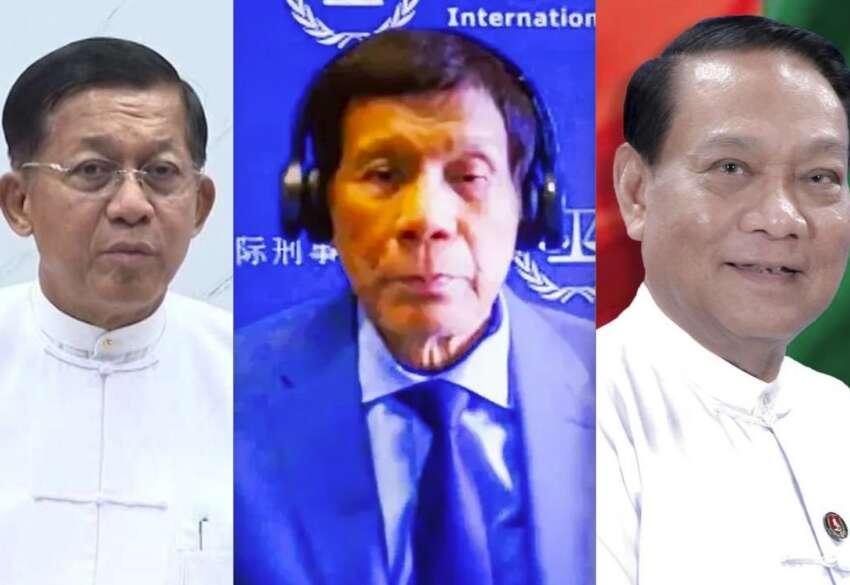
The arrest and investigation of former Philippine President Duterte by the International Criminal Court (ICC) has caused significant concern among Myanmar’s military leadership, including Min Aung Hlaing and other generals in Naypyidaw. Duterte, who was arrested on March 11 by Philippine authorities and transferred to The Hague, Netherlands, is being investigated for crimes against humanity related to mass killings during his anti-drug campaign. The ICC’s actions have created a wave of anxiety among Myanmar’s military leadership, particularly as the court is reportedly preparing arrest warrants for their own alleged crimes.
In response to these developments, Khin Yi, chairman of the military-backed Union Solidarity and Development Party (USDP), has criticized the ICC’s actions as violations of national sovereignty. He argued that the ICC’s jurisdiction over non-member states is inappropriate and represents a flawed approach to international justice. Khin Yi specifically pointed out what he perceives as a double standard in the ICC’s operations, suggesting that the court’s actions disproportionately affect African and Asian nations while other countries remain beyond its reach. He emphasized the need to balance human rights considerations with respect for national sovereignty and the rule of law within individual nations.
The ICC’s successful arrest and ongoing investigation of Duterte has had a notable impact on Min Aung Hlaing and his family, prompting him to request reports on potential scenarios should the ICC issue arrest warrants against Myanmar’s military leadership. The ICC is currently investigating crimes committed against the Rohingya population by the Myanmar military, and there are indications that arrest warrants for Min Aung Hlaing and other military leaders may be forthcoming. The precedent set by Duterte’s case has created significant apprehension among the military leadership in Naypyidaw, as it demonstrates the ICC’s ability to effectively pursue and prosecute former heads of state for alleged crimes against humanity, even in complex political contexts.



